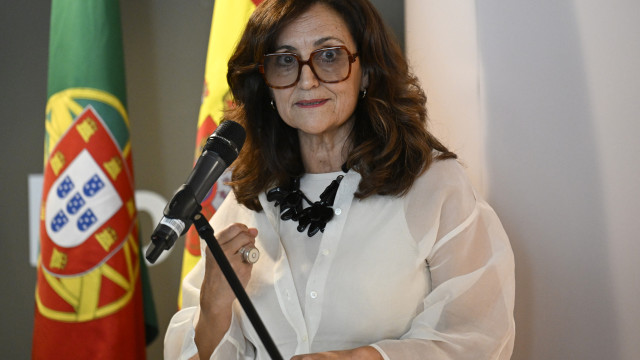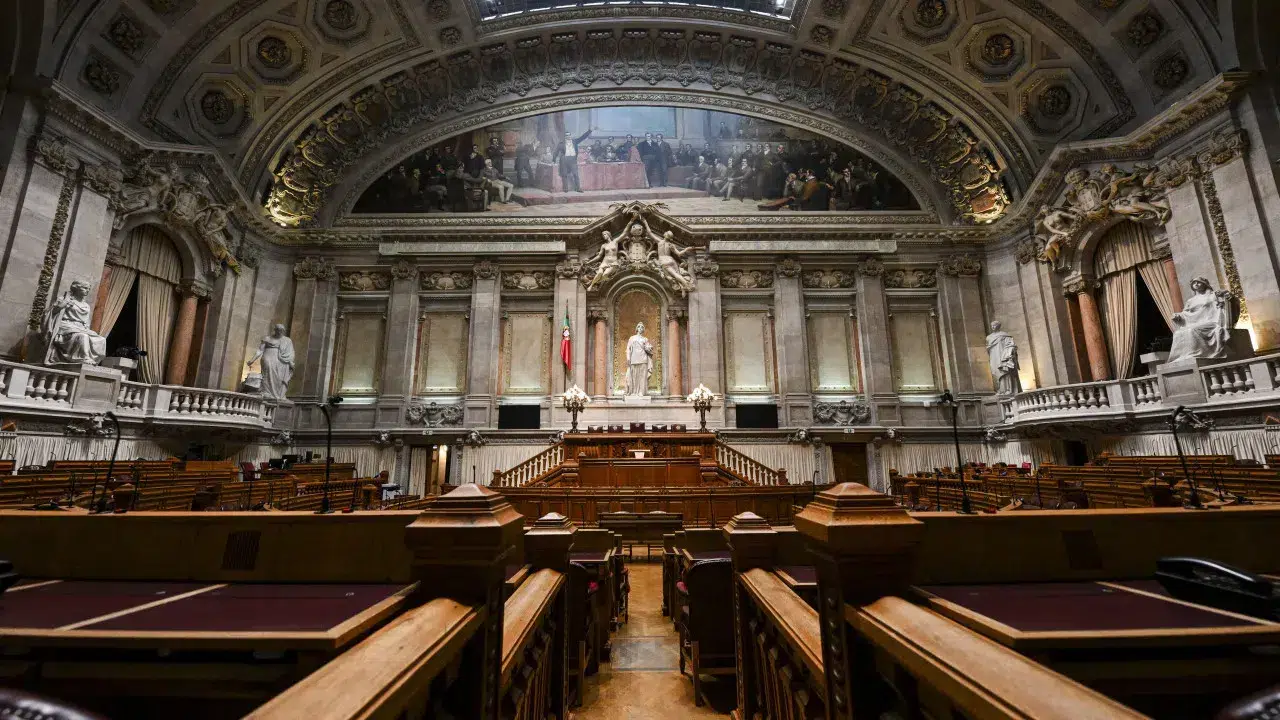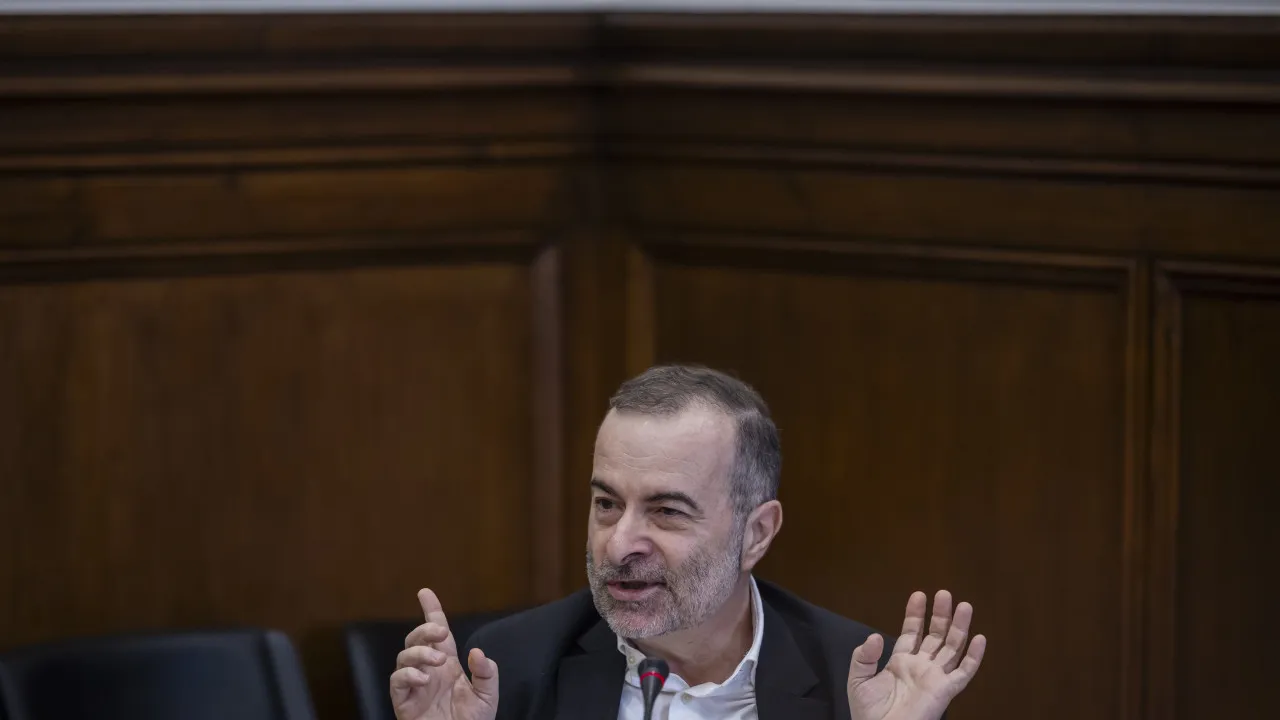“An international call is underway to select and recruit the new Director of Performing Arts, a process set to conclude in November,” stated the Board of Directors of the CCB in a written response, noting that until then, all issues related to this Organizational Unit will be handled by its executive and programming structure.
CCB was contacted following news that Aida Tavares was “formally dismissed,” reportedly happening on Tuesday when she received the dismissal letter from Nuno Vasallo e Silva, president of the CCB Foundation, in the presence of board member Madalena Reis and the CCB’s human resources director.
In a written response, Aida Tavares indicated that “the termination of the service commission contract arises solely from a unilateral decision by the Administration” without her agreement and without any justification.
“And it was even received by me with surprise, given the declarations previously made by the Chairman of the Board of the CCB Foundation to the newspaper Público on June 4”, she added.
A month ago, on June 4, the CCB announced the opening of competitions for the Artistic Direction of Performing Arts and Curator of the MAC/CCB Architecture Center, a position held by Mariana Pestana, who resigned at her request.
At that time, the CCB’s announcement came after Aida Tavares told the newspaper Expresso that she had been dismissed by Nuno Vassallo and Silva and Madalena Reis, by phone at 5:00 PM that day, “when the Minister of Culture [Dalila Rodrigues] already knew she was not staying” in the new Government, whose composition was announced on June 4 and whose ministers took office the following day.
In a message released later that day by Dalila Rodrigues’ office, the then-Minister of Culture declined any responsibility or interference in the CCB process.

The Centro Cultural de Belém in Lisbon will open competitions for the Artistic Direction of Performing Arts, currently held by Aida Tavares, and Curator of the MAC/CCB Architecture Center, held by Mariana Pestana, as announced today.
To the newspaper Público, on the same day, Nuno Vassallo e Silva said that Aida Tavares had not been dismissed but was informed that a competition for the artistic direction of the CCB would be opened, and that he would soon meet with the cultural programmer to “discuss the future” and her relationship with the institution.
Today, Aida Tavares was asked if she considered applying for the position, but the cultural programmer refrained from further comment.
The Workers’ Committee (CT) of the CCB, consisting of a president and four members, submitted a “mass resignation” a month ago, stating in a communiqué that “the sequence of events over the past seven months, culminating in the removal of Aida Tavares, constitutes an irreversible breach of trust in the institutional administration and existing guardianship, thus no conditions exist to continue the open, independent, and democratic dialogue, which is the fundamental principle of the CT.”
At the end of 2023, with the appointment of Francisca Carneiro Fernandes as chair of the CCB’s Board of Directors, from which she was dismissed a year later, two organizational units were established in the institution: Performing Arts and Thought and MAC/CCB.
For the first unit, Aida Tavares was appointed as artistic director through direct recruitment in December 2023, and for the second, Nuria Enguita was selected through competition in March 2024. The museum opened in October 2023 without a director.
The Ministry of Culture, Youth, and Sports, overseen by Margarida Balseiro Lopes, stated today that “it was not aware of the termination of the CCB’s artistic director’s duties.” The minister met with the Board of Directors at the CCB in Lisbon this week.
“Furthermore, it should be noted that this matter is solely the responsibility of the Board of Directors,” reads a written response to questions.
Aida Tavares assumed the role on December 15, 2023, invited by Francisca Carneiro Fernandes, a recruitment aimed at accompanying the institution’s new “strategic cycle.”
This cultural manager was replaced as CCB President by historian Nuno Vasallo e Silva, a decision justified by the need to “impress a new direction to the foundation’s management” to ensure it provides “a service of national scope, participating in a new cycle of Portuguese cultural life.”
The then-Minister of Culture Dalila Rodrigues was heard in parliament in December regarding the dismissal, accusing her predecessor, Pedro Adão e Silva, of having carried out a “power grab” at CCB, ensuring “the end of cronyism at the institution.”
The former minister’s statements led to several parties calling for hearings in parliament with various personalities connected to CCB.
In February, Francisca Carneiro Fernandes denied in parliament that Aida Tavares’ recruitment had been an imposition by Pedro Adão e Silva.
Days earlier, Francisca Carneiro Fernandes’ predecessor, Elísio Summavielle, noted that Pedro Adão e Silva suggested hiring Aida Tavares. This suggestion culminated in a path of disagreements with the previous government, prompting him to decide to leave CCB at the end of 2023, before the end of his last term.
Francisca Carneiro Fernandes justified creating the position of Performing Arts and Thought Director by stating that “any organization programming performing arts must necessarily have a professional artistic direction,” emphasizing that it was unnecessary to initiate operations “to know that the post did not exist at CCB.”
Regarding the “case of Aida Tavares,” Elísio Summavielle refrained from further comments, referring to remarks by board member Madalena Reis the previous week in the same parliamentary commission.
Madalena Reis—now the only board member after Delfim Sardo’s departure at the end of May at his request—explained that she voted against Aida Tavares’ recruitment because she felt “there was no need for change.”
“There was a Performing Arts director. She didn’t have the same profile exactly, but had very similar functions. With that director, a program was created to be shared with the board,” she said.
Pedro Adão e Silva, the last heard in the hearings series, argued that Dalila Rodrigues’ accusations of a “power grab” were unfounded.
For Pedro Adão e Silva, the prior Culture Minister’s “completely absurd” statements were made “for two reasons”: to justify a dismissal she lacked courage to assume and to try to “hide the lost year for cultural policies that was her term.”
Pedro Adão e Silva explained Dalila Rodrigues’ remarks as “a projection mechanism: who says it, is it,” noting that the individuals appointed by the former minister to various posts all have “connections to PSD.” “I made no PS-linked appointment,” he said.
Moreover, they are “all individuals with a similar profile to the minister,” who is a historian, he noted.




